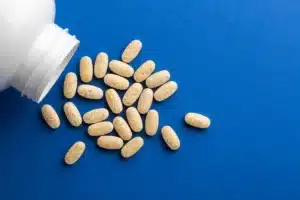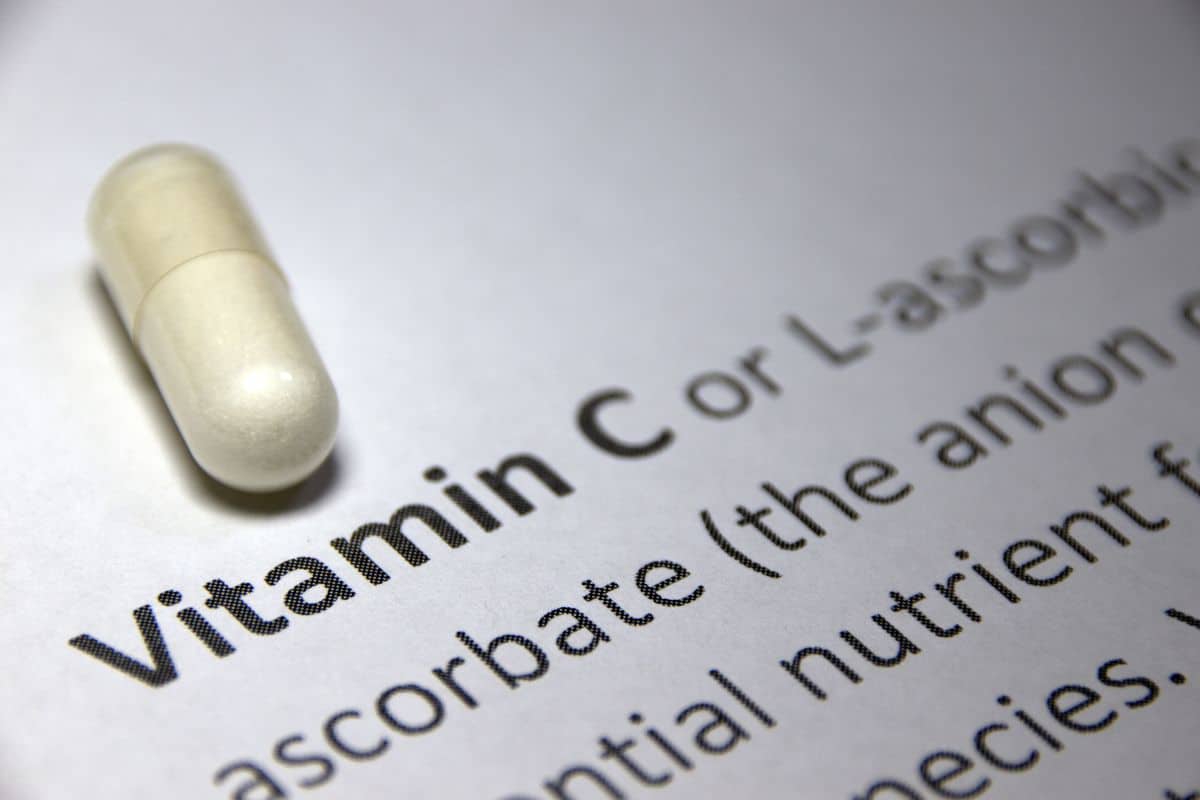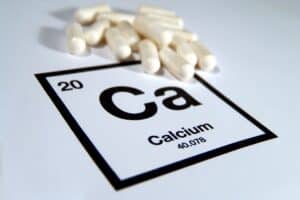Effective Supplements for Alcohol Detox

As things stand, alcohol misuse is cited as the biggest risk factor for poor health, disability, and death among 15 to 49-year-olds in the UK. In England alone, the number of people with alcohol dependence is over 600,000, out of which only a fifth of people are seeking treatment. If you or a loved one is struggling with alcohol addiction, it’s likely that your physician has recommended supplements to take during treatment. It’s worth taking a look at why alcohol detox supplements are important and how it has an impact on your recovery.
What Is Alcohol Detox?
A detox is usually the first stage of alcohol addiction treatment to clear your body of accumulated alcohol. During this stage, your body gets used to functioning without alcohol and overcomes withdrawal symptoms. These include nausea, diarrhoea, insomnia, and other symptoms that occur when someone stops taking alcohol after a long time of heavy drinking.
While it’s possible to undergo an alcohol detox in inpatient and outpatient settings, it’s necessary to do so under medical supervision. This is so that medical personnel can monitor your progress and administer necessary medication to reduce discomfort. In inpatient settings, you receive round-the-clock care in the event of severe symptoms.
Link Between Alcohol Addiction and Nutritional Deficiencies
Perhaps the biggest impact of heavy alcohol consumption is that it interferes with nutrition, which can result in deficiencies or overall malnutrition. For instance, excessive alcohol consumption can cause zinc levels to deplete quickly while reducing the rate at which it’s absorbed from food. It’s why people with chronic alcoholism are often deficient in micronutrients like thiamine, vitamin B6 and folate.
Alcohol addiction is linked to nutritional deficiencies in two ways. Firstly, it can impact the body’s ability to absorb nutrients from foods. Secondly, it reduces your appetite and encourages you to consume empty calories instead. The side effects of excessive drinking, such as vomiting and internal bleeding, can contribute to magnesium and iron deficiencies, respectively. Here, you will also find a list of the necessary vitamins for alcohol withdrawal.
Why Alcohol Detox Supplements Are Important
If you have nutritional deficiencies, they need to be addressed during alcohol detox. Research shows that addressing deficiencies increases your likelihood of recovering from addiction. Not to mention, your body’s nutritional requirements change during detox, which creates the need for adequate nutrient levels that allow proper functioning. On the other hand, detox may take longer and feel more difficult when you’re deficient in essential nutrients. That’s because you may confuse hunger with substance cravings, causing a higher risk of relapse.

Vitamin Supplements To Take During Alcohol Detox
Due to the nutritional deficiencies that occur due to alcohol addiction, clients often receive supportive care during the detox period. Based on your symptoms and blood levels, staff may administer vitamin and mineral supplements. Or if you’re struggling with severe alcohol withdrawal, they may be given as a preventative measure. Some of the alcohol detox supplements you may receive are:
Vitamin A
When your body has low levels of vitamin A, you experience symptoms like dry eyes and skin. In the long run, this can contribute to vision problems, making it harder to see in low-light conditions. Since this micronutrient is metabolised and stored in the liver, it’s bound to be deficient in someone who has an alcohol addiction. Not only is addressing your vitamin A deficiency important for restoring healthy vision, but it plays a role in your immunity as well.
Though you can expect to get a vitamin A supplement during alcohol detox, physicians also recommend eating foods rich in vitamin A. Some examples include liver, eggs, fish, tomatoes, and leafy green vegetables.
B Vitamins
As mentioned above, people with alcohol addiction often have B vitamin deficiencies. Even though heavy drinking can impact various different B vitamins, the most dangerous types are B1 and thiamine deficiencies. For instance, low levels of vitamin B1 in the body can trigger the development of Wernicke-Korsasoff syndrome. It’s why many people enrolled in addiction treatment programs are prescribed B1. Currently, there’s little data to back up the benefits of vitamin B1 on alcohol withdrawal symptoms. That being said, taking a B1 supplement can help you avoid complications related to alcohol use.
Vitamin C
When you’re not eating enough fruits and vegetables due to an alcohol addiction, it can contribute to a vitamin C deficiency. It’s a common nutritional deficiency among people with addiction and can result in other health concerns.

Taking a vitamin C supplement can help protect your body from the toxic effects of alcohol because it’s an effective antioxidant. Thus, it can help reduce inflammation in the body, including your liver. Common examples of vitamin C-rich foods are tomatoes, broccoli, strawberries, and citrus fruits.
Vitamin D
Researchers have yet to find evidence of a clear relationship between vitamin D and alcohol. Even so, the micronutrient has a major impact on mental well-being. That’s because a vitamin D deficiency results in low mood, a common symptom of alcohol addiction.
And let’s not forget that it contributes to bone health and other essential bodily processes. Despite the fact that the body can produce vitamin D through exposure to the sun, people still require a supplement to sustain healthy levels. Foods that are rich in vitamin D include fatty fish, nuts, and seeds. Steady supplementation can help restore cognitive abilities impacted by alcohol addiction.
Omega-3 Fatty Acids
Although the physical side effects of alcohol abuse get immense traction, it’s important to remember that it causes poor concentration, language issues, and even memory loss. Omega-3 fatty acids are among the essential micronutrients the body can’t make, so supplements are essential during detox.
D-Phenylalanine
Unlike other micronutrients, D-phenylalanine is an amino acid – the building block of proteins. It’s responsible for building your body’s muscular structure and is present in foods like poultry, meat, fish, nuts, and legumes. Some research on the effects of D-phenylalanine shows that it potentially relieves alcohol withdrawal symptoms. Even so, it’s unclear how this amino acid is linked to relief from difficult withdrawal symptoms.
L-Glutamine
Under normal conditions, L-glutamate is present in the body at high levels, making it the most abundant amino acid. Unlike some amino acids that are sourced from food, this one is synthesised by the body. While the body can synthesise enough glutamine for its needs, periods of heightened stress levels can increase your body’s need for glutamine.
Besides being developed inside the body, it’s also present in different foods and is available as a supplement. Your physician may recommend eating more foods like whole wheat, soybeans, peanuts, milk, and eggs. At healthy levels, L-glutamine can improve alcohol withdrawal symptoms such as diarrhoea, vomiting, and nausea, which tend to occur during withdrawal. Moreover, experts predict that it works by protecting the gut and preventing it from becoming permeable.
Calcium
Because of its impact on calcium levels in the body, alcohol can cause bones to become brittle and fragile. If you’re dealing with alcohol dependence, your physician may prescribe a calcium and vitamin D supplement to prevent osteoporosis. You can also eat more foods like dairy products, kale, and broccoli.

Magnesium
It’s quite common for people with alcohol addiction to have extremely low magnesium levels. This can lead to side effects like arrhythmia and seizures. Because seizures are already a common withdrawal symptom, you have a higher risk of experiencing them due to low magnesium levels. Besides taking a supplement, consider eating foods like whole grains, seeds, and nuts.
Kudzu Extract
Sounds unfamiliar, right? Commonly used in traditional medicine, the roots and flowers of the Kudzu plant can help address issues like alcohol addiction. According to some experts, it functions as an isoflavonoid, and so its effects are the result of phytoestrogen or plant-based estrogen. Current research supports the use of a Kudzu extract supplement, especially for those dealing with alcohol addiction.
In one study, participants reported that taking the supplement helped reduce their intake, even if they had a habit of drinking heavily. An added advantage is that it doesn’t affect sleep cycles and that it takes a while to start working.
If you are looking for an affordable and reliable home alcohol detox service in the UK, you can get a consultation from UK Home Detox‘s medical professionals.

